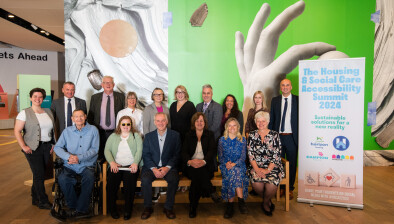England: Housing plans ‘risk accessible homes crisis’
Housing experts have today warned of an “accessible homes crisis” in England after new research revealed that less than a quarter of homes built outside London by 2030 will be suitable for older and disabled people.

Habinteg Housing Association is calling on the UK Government to change national policy so that all new homes are built to be more accessible and adaptable, as they are in London.
Habinteg’s new Insight Report: A Forecast for Accessible Homes analyses English local plans which set policies for what types of homes are to be built by 2030 and where.
There are 13.9 million disabled people in the UK yet just 7% of English homes currently provide even the most basic accessibility features. Unless new homes are suitable, older and disabled people will be excluded from aspects of daily life, placing increasing demand on public services.
Habinteg’s nationwide analysis of 322 local planning policies reveals an imminent crisis in the supply of all types of accessible homes:
- Outside London under a quarter (23%) of new homes due to be built by 2030 are planned to be accessible, negatively impacting on the health and independence of older and disabled people.
- Just 1% of homes outside London are set to be suitable for wheelchair users despite 1.2 million wheelchair users in the UK and a rapidly ageing population.
- There is a postcode lottery in the supply of new accessible and adaptable homes
By 2030 there will only be one accessible new home built for every 270 people in the West Midlands, one accessible new home for every 52 people in the East of England, and one accessible new home for every 24 people in London. - London bolsters the national forecast as the Greater London Authority require 90% of new homes to be built to accessible and adaptable standards (known as building regulations M4 category 2*) and 10% to wheelchair accessible standards (known as building regulations M4 category 3**).
Habinteg’s chief executive, Sheron Carter, said: “We would encourage national government to take a more strategic approach to accessible homes delivery. The optional approach is not only putting older and disabled people’s health and independence at risk but creating costly housing problems for the future.
“While the government has stated their ambition for getting more disabled people into work, our research shows that this will fail unless the housing crisis for disabled people is urgently tackled. We strongly urge the government to raise the mandatory baseline standard for accessible homes.”









